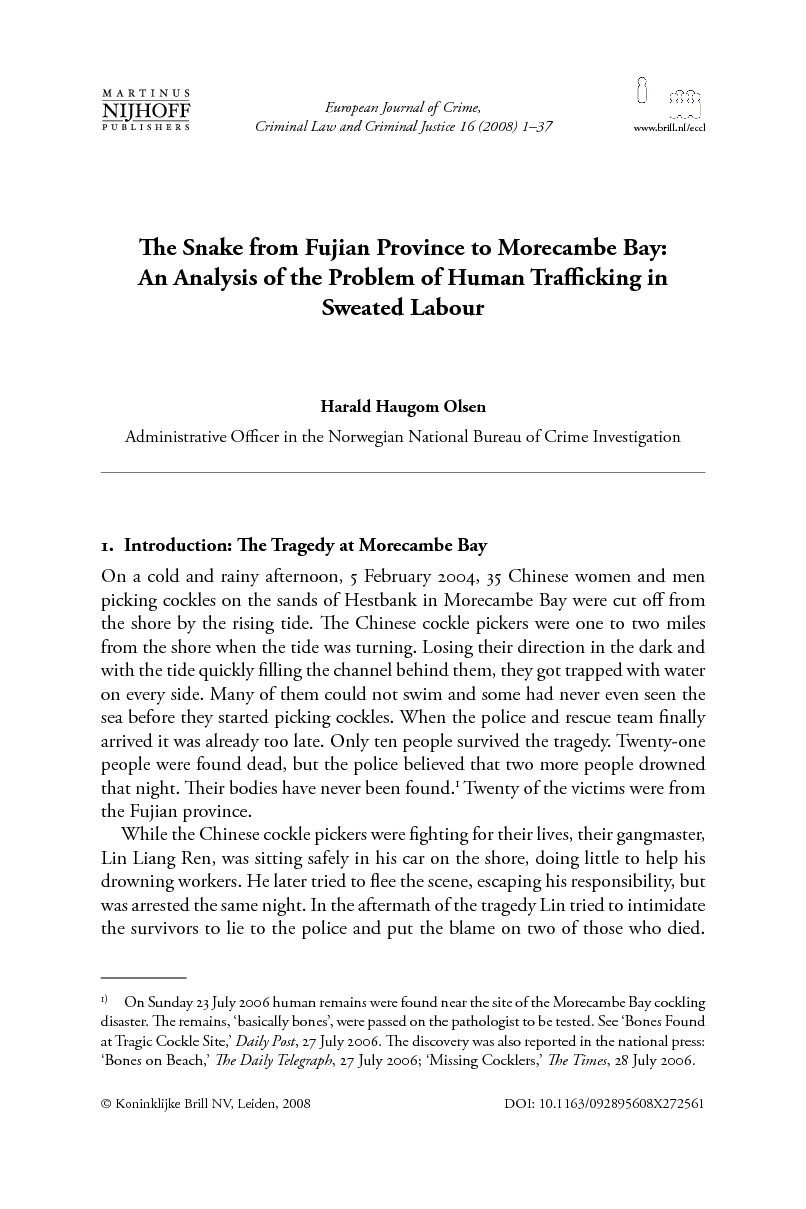
The Snake from Fujian Province to Morecambe Bay: An Analysis of the Problem of Human Trafficking in Sweated Labour
On a cold and rainy afternoon, 5 February 2004, 35 Chinese women and men picking cockles on the sands of Hestbank in Morecambe Bay were cut off from the shore by the rising tide. When the police and rescue team finally arrived it was already too late. Only ten people survived the tragedy. Twenty-one people were found dead, but the police believed that two more people drowned that night. Their bodies have never been found. Twenty of the victims were from the Fujian province.
In the aftermath of the tragedy, public attention was focused on a number of aspects of the situation of the Chinese cockle pickers that went way beyond the actual situation in which they lost their lives: on their working conditions, their living conditions, and on the debt bond these Chinese had incurred as a result of the journey and illegal entry into the UK. Connections were being made to human trafficking and forced labour, and there was talk about modern forms of slavery, people smugglers (snakeheads), and organized crime. But what was really the case of the Chinese cockle pickers? Were they victims of human trafficking, ‘tricked’ by ruthless snakeheads and organized criminal gangs who wanted to exploit them? Or were they clients of people smugglers paying their way out of poverty, willing to endure hardship for prospect of a better life in the West?
